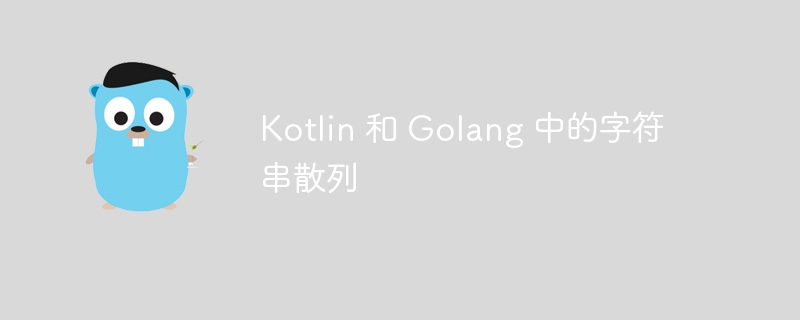Kotlin 和 Golang 中的字串雜湊
- WBOYWBOYWBOYWBOYWBOYWBOYWBOYWBOYWBOYWBOYWBOYWBOYWB轉載
- 2024-02-06 10:12:12797瀏覽

問題內容
在服務 a 中,我有一個像這樣進行哈希處理的字串:
fun string.tohash(): long {
var hashcode = this.hashcode().tolong()
if (hashcode < 0l) {
hashcode *= -1
}
return hashcode
}
我想在用 golang 寫的服務 b 中複製這段程式碼,因此對於同一個單詞,我得到完全相同的雜湊值。據我從 kotlin 文件中了解到,應用的雜湊會傳回一個 64 位元整數。所以在 go 中我這樣做:
func hash(s string) int64 {
h := fnv.new64()
h.write([]byte(s))
v := h.sum64()
return int64(v)
}
但是在進行單元測試時我沒有得到相同的值。我得到:
func test_hash(t *testing.t) {
tests := []struct {
input string
output int64
}{
{input: "papafritas", output: 1079370635},
}
for _, test := range tests {
got := hash(test.input)
assert.equal(t, test.output, got)
}
}
結果:
7841672725449611742
我做錯了什麼嗎?
正確答案
Java 以及 Kotlin 使用與 Go 不同的雜湊函數。
可能的選項是:
- 使用標準雜湊函數。
- 在 Go 中重新實作字串的 Java hashCode。
以上是Kotlin 和 Golang 中的字串雜湊的詳細內容。更多資訊請關注PHP中文網其他相關文章!
陳述:
本文轉載於:stackoverflow.com。如有侵權,請聯絡admin@php.cn刪除

